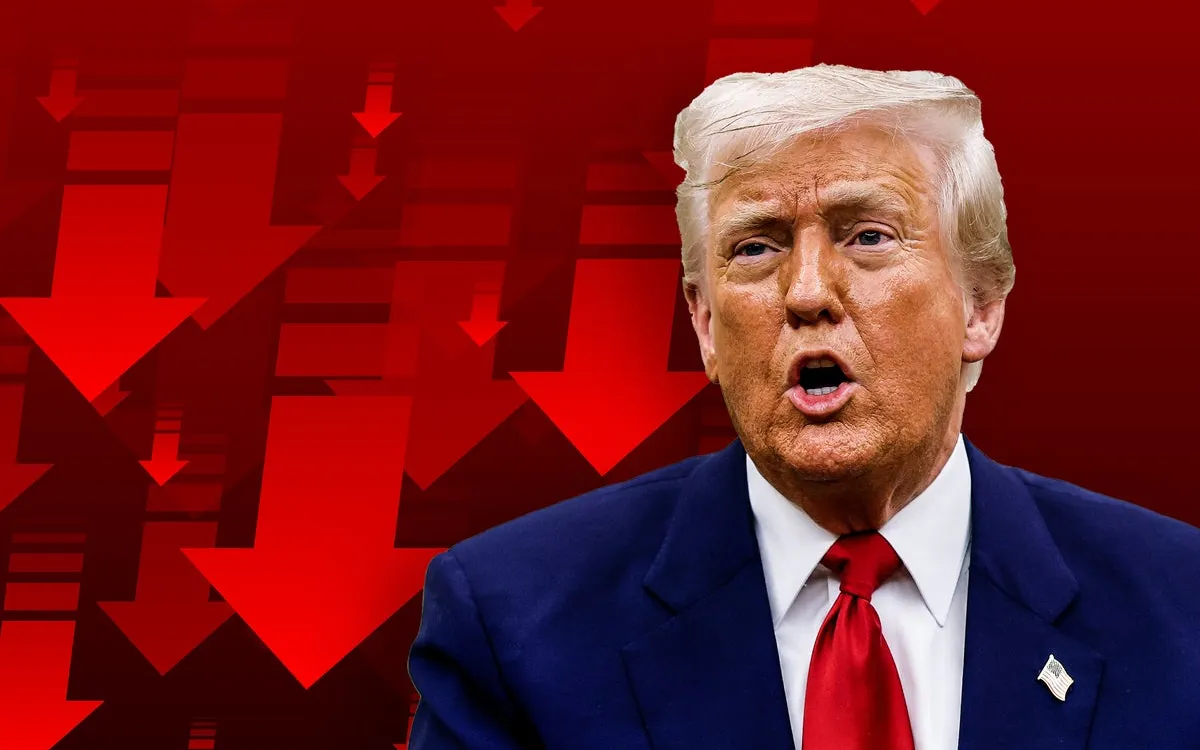
In the realm of politics and business, Donald Trump has mastered the art of transforming failures into perceived successes. This week, his retreat on tariffs stands as a prime example of this phenomenon, akin to his very own Mona Lisa. The president had promised that his global tax initiative would usher in a new era for American manufacturing, revitalizing the middle class, creating jobs, and revitalizing industries, all while prioritizing Main Street over Wall Street. However, just a week after making these grand claims, he was forced to backtrack, leaving many to question the reality of his assertions.
The stark contrast between Trump's promises and the subsequent outcomes became evident after he retracted his tariff plans. In a striking juxtaposition, the president gathered a group of billionaires in the Oval Office to celebrate their financial gains, while everyday Americans grappled with losses in their retirement savings. Trump gleefully announced the profits of his billionaire friends, highlighting the disconnection between his rhetoric and the financial struggles faced by many citizens. This situation painted a clear picture of the week’s events: a poorly conceived economic strategy from the leader of the free world met with swift rejection from global markets, leading to a humiliating retreat.
Despite the fallout, the White House attempted to spin the narrative. Critics have likened the administration's response to an Orwellian propaganda effort, reminiscent of the works of Cervantes. In this version of events, Trump portrayed himself as a modern-day Don Quixote, bravely battling imaginary giants in the global financial arena. In a dismissive remark, press secretary Karoline Leavitt suggested that the media had failed to grasp the essence of Trump's approach, invoking his book, The Art of the Deal.
However, the reality was that a wide array of stakeholders—including global financial markets, economists, and even his own advisors—struggled to comprehend the president's intentions. Trump's announcement of significant tariff changes shocked many, especially when he included absurd examples, like imposing tariffs on remote islands inhabited solely by penguins. Such illogical proposals left even advanced algorithms struggling to make sense of his economic plans.
As the situation unfolded, it became clear that Trump's tariff strategy was riddled with contradictions. On one hand, he claimed that these tariffs were essential for rebuilding the American manufacturing base; on the other, he suggested they were a means to renegotiate trade deals more favorably for the U.S. This duality created confusion for entrepreneurs and investors alike, leaving them unsure of the future.
The consequences of Trump's misguided tariffs were immediate and severe. Following his announcement, the U.S. stock market experienced a dramatic decline, with over $2.5 trillion wiped off the S&P index—the worst drop in five years. Trump attempted to downplay the crisis, likening the market's volatility to the aftermath of a significant surgical operation. His optimistic proclamations about a booming economy fell flat as reality proved otherwise.
As the financial markets continued to plummet, the pressure mounted on Trump to reassess his approach. In a surprising turn, he announced on Truth Social that he would pause the controversial tariffs for 90 days while simultaneously increasing tariffs on China to 125 percent. Despite claiming that over 75 countries were eager to negotiate new trade deals with the U.S., the White House refused to disclose any specifics, leaving many skeptical of the administration's assertions.
Ultimately, Trump's retreat from his tariff strategy serves as a cautionary tale about the potential consequences of poorly conceived economic policies. The impact of his decisions resonates through the lives of countless Americans, echoing the lessons learned from his previous business failures, such as his ill-fated Atlantic City casinos. While Trump continues to celebrate the perceived successes of his tariff policies, many Americans are left grappling with the harsh realities of economic uncertainty.